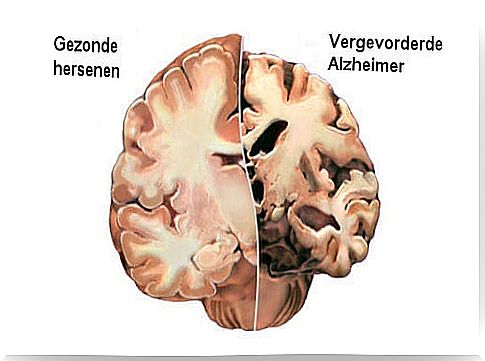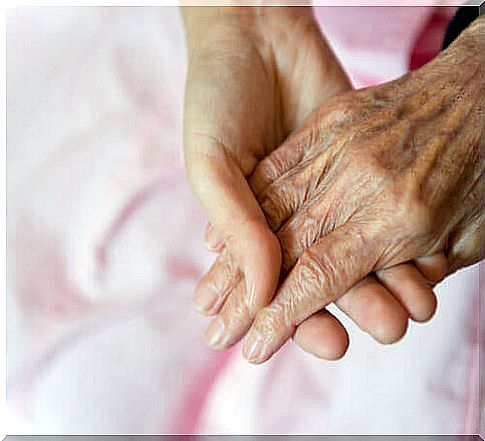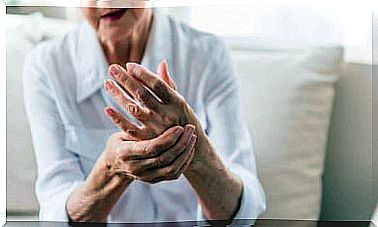Alzheimer’s: Early Detection Of The First Symptoms

Alzheimer’s disease is a degenerative nerve disease, which is progressive and irreversible. It is therefore important to recognize it in time.
For an active, sociable and hard-working person, getting older must be difficult. Especially when this is accompanied by the unpleasant changes that accompany the first symptoms of Alzheimer’s.
Both the patient and his or her family deserve psychological and emotional support. To cope well with the changes that the progression of the disease brings.
Mental decline
This disease is seen as the primary cause of mental decline. It can start between the ages of 40 and 90 years old.
However , the cause is still unknown. Several changes in the brain characterize this disease, leading to general atrophy of this organ.
An Internal Medicine Abstract by Ciril Rozman divides the disease into three sequential stages:
First stage
In the first stage of the disease, the patient suffers from forgetfulness, sudden mood swings and problems with speech.
Second stage
In the second stage there are noticeable changes in short term memory. There is also a weakening of language and communication with others is reduced. It becomes difficult to grasp objects and maintain normal daily life.
Third stage
In the third stage, the patient may still retain emotional memory, but the mood becomes unpredictable and attempts to communicate result in incoherent gibberish. Patients also lose control of their sphincter and have difficulty swallowing. Their normal life changes completely. It is therefore impossible to live independently any longer.
Be attentive if a family member shows any of the following symptoms at any time.
- Repeating what he or she has said several times,
- forgetting where he or she has put objects,
- inability to properly perform activities that were considered daily,
- can’t remember what day of the week it is
- not recognizing places in the house where he or she usually spends time etc.
Get a diagnosis
After all, such a situation indicates that something is seriously wrong and that the person should be examined by a qualified specialist. Once the disease is confirmed, the doctor will start medication to help control the symptoms.
Complications
Four to ten years after the onset of the disease, the complications of Alzheimer’s will usually lead to death.
In terms of treatment, there is no specific drug to treat the disease, as its cause is still unknown. Alzheimer’s treatment is limited to treating the symptoms.
While we wait for scientific progress to determine the cause of this disease and other diseases, it is important that we learn to recognize the early symptoms so that the progression of the disease can be slowed down.

Physiotherapy tries to maintain a good quality of life, within the limits of the disease. It is therefore important to start this treatment as soon as the first symptoms appear. You cannot stop the decline associated with Alzheimer’s, but you can try to slow it down and ensure that the patient can maintain his or her independence for as long as possible.
The person will find it increasingly difficult to perform activities that were once considered daily.
Perform activities
Because there is often a fear that the patient will fall (and this would worsen the prognosis), relatives often keep the patient in a wheelchair or confined to the bed. However, this immobility poses other problems that can accelerate the decay process.
Physiotherapists try to inhibit the normal process of the disease. They try to keep the ability to walk for as long as possible. By having specific exercises done at each stage of the disease.
To maintain a good attitude, to encourage healthy joints and muscles, the balance maintaining or re-learning etc. are some of the things the physiotherapist in Alzheimer patients trying to treat.
To show interest
Showing more interest in these patients will encourage them to adopt a more active lifestyle and maintain social ties with family and acquaintances. This prevents the depression from which the majority of Alzheimer’s patients suffer.









